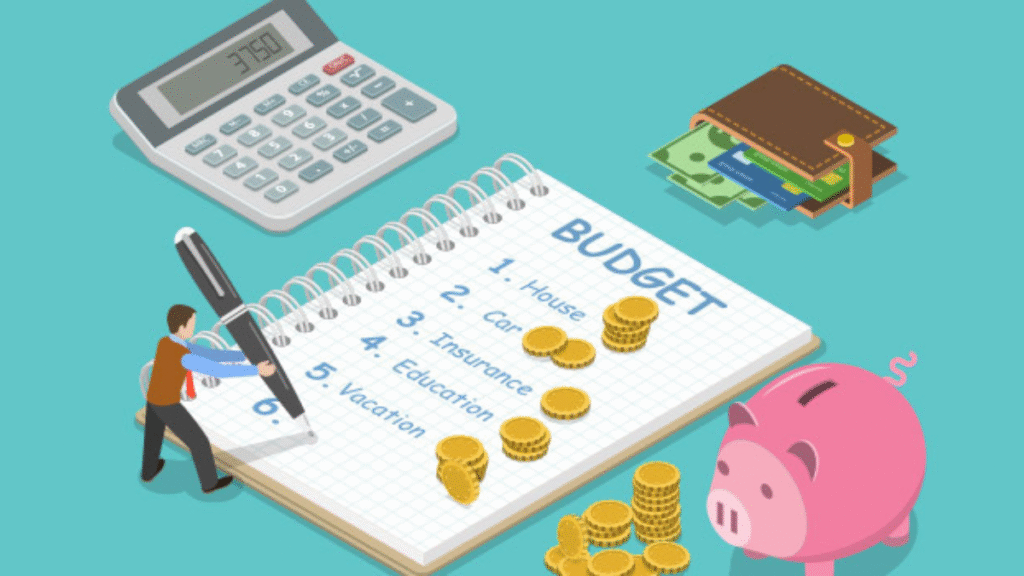Planning for your financial future isn’t just about saving money — it’s about building a secure foundation for everything life throws your way. Whether you’re in your 20s or nearing retirement, safeguarding your finances is a lifelong process. This guide explores the top ways to protect your financial future with practical strategies to grow, manage, and preserve your wealth.
Why Financial Protection Is Important
Your financial future isn’t guaranteed. Life events like job loss, medical emergencies, inflation, and market downturns can derail even the best-laid plans. Protecting your finances means preparing for these uncertainties while ensuring long-term growth and security.
Build a Strong Financial Foundation
Create a Budget That Works

Start by tracking your income and expenses. Categorize your spending and identify areas where you can cut back. A realistic and flexible budget helps prevent overspending and ensures that you’re saving consistently.
Establish an Emergency Fund
An emergency fund acts as your financial cushion. Aim to save at least 3 to 6 months’ worth of living expenses. This fund should be easily accessible and used strictly for unexpected events such as medical emergencies, car repairs, or sudden job loss.
Reduce and Eliminate Debt
Focus on paying off high-interest debts such as credit card balances. Consider strategies like the snowball method (paying off smallest debts first) or avalanche method (paying off highest interest rates first). Reducing debt frees up money for saving and investing.
Invest in Your Future
Start Investing Early
The earlier you start investing, the more time your money has to grow through compound interest. Begin with basic investment tools like mutual funds, index funds, or retirement accounts. Even small, regular contributions can add up over time.
Diversify Your Investments
Don’t put all your eggs in one basket. Spread your investments across various asset classes like stocks, bonds, real estate, and commodities to reduce risk and increase your chances of stable returns.
Understand Risk Tolerance
Everyone has a different comfort level with risk. Assess your financial goals, timeline, and emotional capacity for losses. Align your investment strategy with your personal risk profile to stay committed during market fluctuations.
Plan for Retirement
Set Clear Retirement Goals
Define what retirement looks like for you — where you’ll live, what lifestyle you want, and how much it will cost. Setting specific goals will help you determine how much you need to save and invest.
Contribute Regularly to Retirement Accounts
Make consistent contributions to retirement accounts. Use automated deposits to stay disciplined. Increase your contributions over time as your income grows.
Don’t Rely Solely on One Source
Instead of depending on just one retirement income stream, build multiple sources such as personal savings, investment income, rental properties, or passive income streams.
Protect Your Income and Assets
Get the Right Insurance Coverage
Protect your income and assets with appropriate insurance plans. This can include:
- Health insurance
- Life insurance
- Disability insurance
- Property insurance
These policies offer financial protection during emergencies and reduce out-of-pocket expenses.
Create a Will and Estate Plan
An estate plan ensures your assets are distributed according to your wishes. Draft a will, assign power of attorney, and consider setting up a trust. This reduces stress for loved ones and protects your financial legacy.
Keep Legal Documents Updated
Keep copies of all essential legal documents like wills, insurance policies, property deeds, and financial statements. Update them regularly as your circumstances change.
Increase Your Financial Literacy
Stay Informed About Personal Finance
Financial knowledge empowers better decision-making. Read books, attend workshops, watch educational videos, and subscribe to personal finance blogs. A strong grasp of financial concepts helps you avoid costly mistakes.
Understand Credit Scores and Reports
Your credit score affects loan approvals, interest rates, and rental applications. Check your credit report regularly, pay bills on time, keep balances low, and avoid unnecessary inquiries to maintain a healthy score.
Learn About Tax Planning
Strategic tax planning can save you thousands annually. Understand tax deductions, credits, and how different investments affect your taxable income. Consider consulting a tax expert if needed.
Adopt Smart Spending Habits
Differentiate Between Needs and Wants
Prioritize essential expenses like housing, food, healthcare, and education. Minimize spending on non-essentials to boost savings and reduce debt.
Use Cash or Debit Over Credit
Whenever possible, use cash or debit cards to avoid interest charges and overspending. Credit cards can be useful but only when managed responsibly.
Practice Mindful Shopping
Before making a purchase, ask yourself if it’s necessary and if it aligns with your financial goals. Avoid impulse buys and take advantage of discounts, coupons, and cashback offers.
Set Financial Goals and Monitor Progress
Define Short-Term and Long-Term Goals
Short-term goals might include building an emergency fund or paying off credit card debt. Long-term goals may involve buying a home, funding children’s education, or saving for retirement.
Review and Adjust Regularly
Life changes — so should your financial plan. Review your goals, budget, and investments at least annually. Adjust based on income changes, market conditions, or life events.
Build Multiple Income Streams
Start a Side Hustle
Supplement your main income with freelance work, part-time gigs, or creative ventures. The extra money can go toward debt repayment, saving, or investing.
Create Passive Income Sources
Passive income sources like rental properties, dividends, royalties, or digital products generate income with minimal effort over time, providing financial security.
Reinvest Earnings for Growth
Instead of spending additional income, reinvest it into stocks, education, or business opportunities to grow your wealth and achieve financial independence faster.
Avoid Financial Pitfalls
Don’t Ignore Inflation
Inflation erodes the value of money over time. Invest in assets that outpace inflation and regularly review your purchasing power.
Avoid Lifestyle Inflation
As income increases, many people increase their spending proportionally. Fight this by maintaining a modest lifestyle and saving the difference.
Be Cautious With Financial Advice

Not all financial advice is created equal. Research thoroughly and make decisions based on your unique goals and risk tolerance. Avoid get-rich-quick schemes or unverified investment opportunities.
Build a Resilient Financial Mindset
Stay Disciplined and Patient
Wealth-building takes time. Stay consistent with your financial habits, even when progress feels slow. Discipline and patience are key to long-term success.
Prepare for Life Transitions
Expect changes like marriage, parenthood, job switches, or health challenges. Build flexibility into your plan so you can adapt without sacrificing your financial future.
Celebrate Milestones
Recognize progress — whether it’s paying off a debt, reaching a savings goal, or increasing your net worth. Celebrating financial wins boosts motivation and confidence.
Also Read : Personal Finance Hacks to Grow Your Wealth
Conclusion
Protecting your financial future requires consistent effort, smart planning, and the ability to adapt to changing circumstances. From building an emergency fund to diversifying investments and staying financially educated, each step plays a critical role. Begin today, no matter where you stand financially. Small improvements can lead to significant long-term rewards.
FAQs
What is the most important first step to protect your financial future?
The first crucial step is building a budget and emergency fund. These provide stability and allow you to manage money effectively during unexpected events.
How much should I save for retirement?
A general rule is to save 10–20% of your income throughout your working years. However, this can vary based on your desired retirement lifestyle and expected expenses.
Is it better to pay off debt or invest?
It depends on the type of debt and potential investment returns. High-interest debt should be paid off first. If your investment returns outpace the debt interest, a balanced approach may work.
How can I make passive income?
You can generate passive income through investments (dividends), rental properties, digital products, or royalties. These require initial effort but can create ongoing cash flow.
What kind of insurance is essential?
At a minimum, everyone should consider health insurance, term life insurance (if you have dependents), and property insurance. Optional policies depend on your career and lifestyle.







